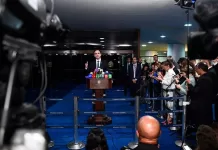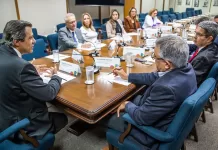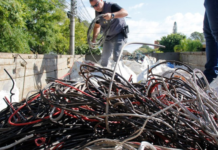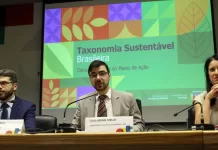The Government won?t issue the promised decree setting out its new telecommunications policy until after July 3 when President Luiz Inácio Lula da Silva returns from the G8 summit in Evian, France, where Lula will be among a dozen invited heads of state.
The delay reflects a decision to hold a round of political talks with the incumbent local exchange carriers, possibly with President Lula himself taking part, before the decree is finalized.
Communications Minister Miro Teixeira met Wednesday, May 28, with Lula and other senior cabinet members including Finance Minister Antônio Palocci, Chief of Staff José Dirceu and Communication & Strategy Minister Luiz Gushiken, to discuss the telecoms policy in light of the fierce opposition already expressed by the ILECs.
The meeting created expectations of more profound discussion of the new policy, in accordance with Lula?s preference for negotiation rather than confrontation, but concessions on fundamentals are unlikely. The Government needs to keep the annual tariff review set for July as low as possible, find a way to eliminate indexation in future, and encourage more competition.
Well-informed sources said the presence at the meeting of Congressmen Jorge Bittar and Walter Pinheiro, both leaders of the Workers Party (PT), ensured a wide-ranging debate and noted signs of a belief that too much weight may have been given to Embratel?s position when the policy was developed.
Inflation
All this highlights two key issues faced by the Government: It needs immediate solutions to problems such as the tariff reset, lack of telco transparency, indexation and competition; and at the same time it needs to open up the debate in order to prevent conflict with the ILECs from widening beyond the argument that broke out this week. At the meeting with Lula the Communications Ministry was reportedly told to keep its finger on the industry?s pulse more sensitively from now on.
On the other hand, the Government?s message to the ILECs is clearly that Finance Minister Palocci is closely watching the discussion as well as the inflation indices and the economic impact of telephone tariffs, with a view to working out a new set of rules.
It?s also worth noting efforts by the Communications Ministry and the Federal Controller-General (CGU) to collect information on the privatization of Telebrás in search of possible irregularities. Part of the rush is to investigate allegations before the fifth anniversary of privatization on July 28, after which prosecutions will be blocked by the statute of limitations and control of privatized companies will be more lax.







